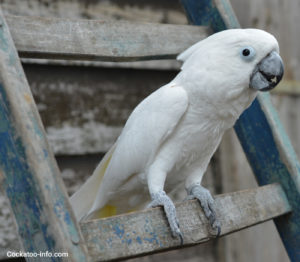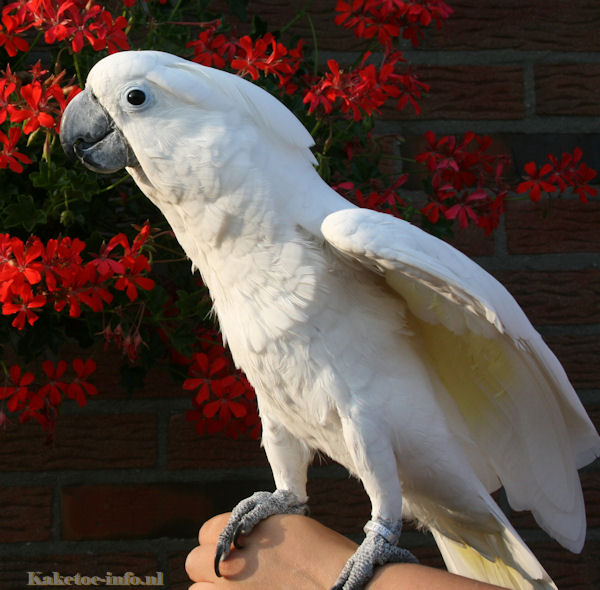Generally cockatoos are hardy birds that can live in a wide range of temperatures, but of course there are limits. Here you can read all about the upper and lower limits of temperature to keep a happy and healthy cockatoo.
Warmth for baby cockatoos
Young cockatoos that need to be fed with formula, need to be kept warm all the time. The person that gave you this baby bird has to have told you exactly at which temperature it needs to be. The temperature can be lowered when the cockatoo is getting older. Generally very young parrots need to be kept at 97 degrees Fahrenheit and when they get older this can be lowered by 2 degrees every day. Please consult a professional when rearing cockatoo chicks.
Cold temperatures – the lower limit
 Cockatoos can live in pretty cold conditions, even though they are from tropical or subtropical regions originally. The temperature of the cage or the indoor area of the aviary should never go below freezing and should be free from draft. If your cockatoo chooses so, he can go around the aviary when it is freezing without problems as long as it can choose to move to a non-freezing area.
Cockatoos can live in pretty cold conditions, even though they are from tropical or subtropical regions originally. The temperature of the cage or the indoor area of the aviary should never go below freezing and should be free from draft. If your cockatoo chooses so, he can go around the aviary when it is freezing without problems as long as it can choose to move to a non-freezing area.
Hot temperatures – the upper limit
Cockatoos handle heat pretty well, because they are from tropical or subtropical areas of the world. Direct sunlight can however overheat your cockatoo; in nature he can always find shadow but in captivity he is dependent on you providing that. Always make sure your cockatoo can move freely to a spot out of direct sunlight.
You can easily see if your cockatoo is feeling too hot; he will pant, keep his wings away from his body and keep his feathers very flat against his body. If you see this, provide your bird with a cooler area like the shadows and spray him with some lukewarm water.
You should never leave your cockatoo inside your car. Temperatures can rise very fast inside a car when the sun is shining, even when the day is not particularly hot. Your cockatoo can die within 20 minutes of parking your car.

